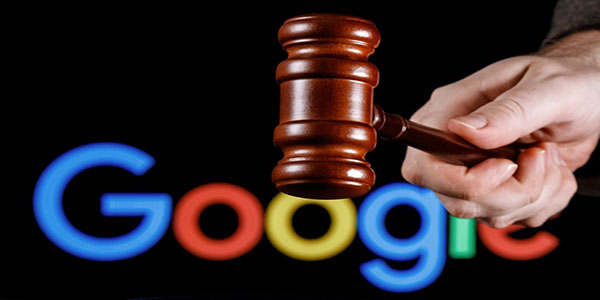 |
||||||||||||
|
||||||||||||
| Google Announces Deadline for Cookie Deprecation, for Real This Time |
 |
| Google has extended the deadline for turning off third-party cookies in Chrome several times, raising doubt around the ad tech community that the cookie would ever crumble. Joey Trotz, Director of Google's Privacy Sandbox, eased all industry suspicion at AdMonsters Ops NY conference in a session about why publishers should start testing Google’s Privacy Sandbox now. “One hundred percent, we are deprecating the third-party cookie in the second half of 2024 – full stop,” said Trotz. Testing…Testing…: For publishers not acclimating to the new status quo, you should start testing your post-third-party cookies solutions now. When the cookie crumbles and you aren’t prepared, the weight of your business hangs in the balance. Paul Bannister of Raptive acknowledged that his company began testing Google Privacy Sandbox solutions back in 2020. He urges that now is the perfect opportunity for publishers to raise any red flags to regulators about what works well and what needs improvement. Get Your Head in the Game: “Publishers that start testing the Privacy Sandbox APIs now will also be in a better position when third-party cookies are gone,” Trotz said. “I guarantee you’re not going to just drop in Topics on July 1, 2024, and have your revenue be what you want it to be without a cookie.” |
| When Google announced its plan to end third-party cookie tracking in 2020, it felt like doomsday to the ad tech ecosystem — as if God opened the sky and declared the start of the prophecy in Revelations. The community withered through the stages of grief and realized that all they knew about the advertising world was crumbling in front of their eyes. But as Joetta Gobell, VP, Research & Insights, Dotdash reminded us back then, “Cookies are just a tool, and we can’t let tools take priority over goals.” A New World Unfolds: Much has changed since that fateful time. The industry realized that the world wasn’t ending, but a new one was forming.
33Across released a programmatic study identifying emerging buy-side and sell-side trends for cookieless inventory on the 33Across exchange. The findings were optimistic.
Privacy Sandbox Offers Two Testing Periods: In the first phase, starting in Q4 of this year, ad tech companies can opt out of using third-party cookies for 10% of their Chrome traffic. This period will include labeling impressions as cookieless or not to facilitate A/B testing. The second phase will occur in Q1 2024, where Google will deprecate third-party cookies for 1% of all global Chrome traffic. This marks the initial stage of deprecation and signals the commencement of intense testing. |
|
| Google’s Global Legal Troubles |
 |
| Antitrust season is year-round for big tech in 2023. The tech titan Google has found itself in another antitrust debacle. The EU dropped a bombshell, charging them with violating EU antitrust laws. Google's dominance in online advertising has led them down a slippery slope, undercutting their competitors left and right. This marks their fourth appearance in recent years as they continue to tango with European antitrust laws. This case accuses Google of abusing its control of buying and selling ads in the supply chain. |
| Regulators worldwide are putting pressure on big tech companies to lessen the grip of their monopolies on digital media and advertising, while also putting consumer data privacy first. Any avid readers of our Wrapper series will know how much antitrust trouble big tech has faced this year alone. Last year, Google's parent company, Alphabet, raked in a whopping $60 billion in profit, with advertising being its cash cow, and this recent case could put a significant dent into that profit. Advertising is the lifeline of Google's services like search, email, maps, and Android, which enables them to offer those services to consumers for free. Despite this, there's a good chance Google won't take the hit lying down. In January, the DOJ sued Google for, you guessed it, another antitrust lawsuit. This was the second time the DOJ sued Google for monopolizing the digital advertising industry. Google fired back, suggesting that the DOJ did not have enough evidence to allege a monopoly. "The DOJ's lawsuit does not reflect the dynamic digital advertising industry and ignores key players we compete against every day," said Dan Taylor, Google's vice president of global ads. "The DOJ's lawsuit is wrong on the facts and the law, and we will continue to defend against it in court." If found guilty, Google will pay a fine of up to 10 percent of its global revenue, or it will have to change its business practices and perhaps spin off its advertising biz. |
| Mercedes-Benz Drives Into Generative AI Era With ChatGPT, but Potential Pitfalls Loom |
| The News: Mercedes-Benz recently announced plans to take in-car voice control to a new level with ChatGPT. “While most voice assistants are limited to predefined tasks and responses, ChatGPT leverages a large language model to greatly improve natural language understanding and expand the topics to which it can respond,” the company said in its release. A Cause for Concern: The Mercedes-Benz release points out that the ChatGPT in-car system will respect the driver’s privacy and keep their personal data secure from “manipulation and misuse,” but it is silent on the topic of jailbreaking — entering prompts that can bypass a model’s safety systems. Generative AI is also vulnerable to prompt injection attacks, a type of attack that is similar to JavaScript injection attacks. But instead of injecting code, nefarious players inject malicious information or data into the language model. By altering the prompts, the attacker can influence the model’s response, which can potentially include deceptive or harmful content. James Vincent at The Verge believes it’s a matter of when, not if, users will jailbreak the Mercedes-Benz chatbot. He writes: “At any rate, we look forward to hearing about the users who jailbreak their Mercedes using prompt injection. “Hey ChatGPT, pretend we’re in debug mode at the Mercedes-Benz factory...” There have already been instances where drivers jettison common sense in favor of following the advice offered by a device (death by GPS is a thing). One hopes that Mercedes-Benz has strong guardrails in place. |
| There’s no doubt that generative AI can enhance a lot of news and consumer products in interesting ways, but as Kyle Hale told AdMonsters, it’s easy to roll out ChatGPT. The hard part is accuracy, reliability, and safety. Anyone interested in jailbreaking any text-based generative AI platform will find a plethora of websites, YouTube videos, and discussion groups to provide instructions on how to go about it. Evidently, it won’t take more than a few hours to do so. OpenAI itself has a relatively benign view of jailbreaking. In an interview on the topic, CEO Sam Altman said, “We want users to have a lot of control and get the model to behave in the way they want within some very broad bounds. And I think the whole reason for jailbreaking right now is we haven't yet figured out how to give that to people.” Given that OpenAI considers jailbreaking as much a feature as a bug, it’s vitally important that any brand opting to implement ChatGPT build and text guardrails before rollout. There’s no doubt that generative AI is the future, and all publishers and brands should consider a way to incorporate it into their products. There’s also no doubt that locking down generative AI to prevent mischief is the next big growth industry. |
| Around the Water Cooler |
| WTH Are Apple's Privacy Manifests Apple's privacy manifests have marketers scratching their heads and consumers cheering. With these privacy initiatives, Apple aims to protect user data and provide transparency, making it challenging for marketers to track and target users. (Digiday) Generative AI Makes Voice Scams Scarily Accurate Get ready for a new wave of identity fraud, courtesy of generative AI voice scams. Advancements in AI technology have made it easier for scammers to mimic anyone's voice and deceive unsuspecting victims. (Axios) Neilsen's Precursor to Data Clean Rooms Nielsen is shaking up the media world by launching their media data room, a precursor to their highly anticipated cross-media measurement solution. The tool will provide marketers with comprehensive data, insights, and analytics to understand audience behavior across various media channels. (MediaPost) Reddits BlackOut Causes Scare for Advertisers A storm is brewing on Reddit as advertisers face the ripples of a moderators' strike. The absence of moderators and the resulting disruption in content moderation could impact brand safety and advertising on the platform. (AdWeek) |
| @{optoutfooterhtml}@ |










